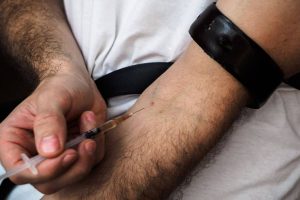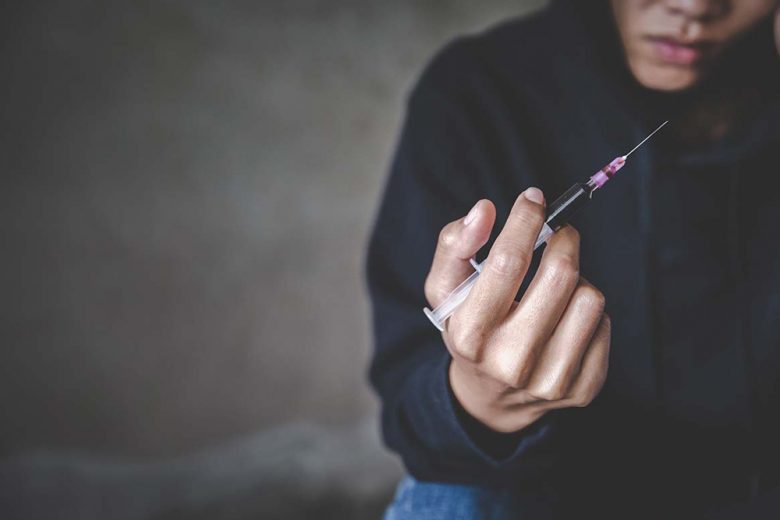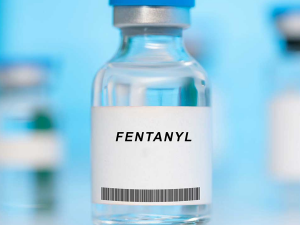It is never easy to pinpoint or admit if you or any of your loved ones are experiencing heroin addiction. Talking to them for early intervention is even harder because you don’t want them to get offended and feel judged about their situation.
Nevertheless, the benefits of an early intervention and treatment program are far better than your fear that your loved one might get offended or shy away from you. If you think you or anyone in your family is abusing this illicit drug, then contact your nearest addiction specialist for guidance.
Furthermore, we have included in this read the top signs for heroin addiction. Continue reading to learn more about it.
How Heroin Works On The Body
 There are plenty of ways of using this morphine-derived illegal substance, which include snorting, smoking, and injecting through your veins or underneath your skin. Once you ingest this substance, it dissolves in your blood and directs its effects on your brain.
There are plenty of ways of using this morphine-derived illegal substance, which include snorting, smoking, and injecting through your veins or underneath your skin. Once you ingest this substance, it dissolves in your blood and directs its effects on your brain.
It works on the mu-opioid receptors in your brain, where it stimulates the production of dopamine or the “happy-feeling hormone” which neutralizes the pain and discomfort felt by your body. With that, it gives you a temporary feeling of pleasure or highness.
When you continually overdose with this illicit drug, you gain tolerance, so you are pushed to take a higher dosage to experience the same level of highness from the start.
Short-Term Effects of Heroin Addiction
The intensity of pleasure or rush you will feel from taking this illicit drug greatly depends on your dosage and how fast your body absorbs it. Alongside this, here are some immediate effects when you overdose on heroin.
- Warm skin flushing accompanied with dry mouth and feeling that your lower limbs are getting heavier
It is the first immediate impact you will feel once this illegal drug enters your system. You will feel these sensations together with the quick euphoric effect of this drug.
- Skin itchiness, vomiting, and nausea
These are the secondary signs you will feel when you abuse this illicit substance.
- Feeling sleepy and slower heart rate
Once the rush is gone, the next thing you will feel is being drowsy or sleepy. It seems like your booster is gradually depleted, then your heartbeat goes slower.
- Depressed breathing
Your lungs work slower as well together with a slower pumping in your heart. The adrenaline or surge has worn off already from your body.
- Temporary numbness
Once the rush (euphoria) kicks in, you will also feel slight numbness from all pains in your body.
Long-Term Effects of Heroin Addiction
If you allow yourself to abuse this illicit substance repeatedly, it will produce serious ill-effects in your brain and body. Your second, third, and nth time dosage will be higher than the previous due to the tolerance you’ve built for this substance.
Specifically, here are the long-term adverse impacts when you overdose with this illicit drug.
- There will be a deterioration of the white matter in your brain, which leads to decreased brain function such as analysis, decision-making, and responding to various stimuli in your environment.
- Due to the slow depletion of white brain material, you will also have difficulty controlling your behavior.
- After a few hours from your last intake, you will quickly feel withdrawal effects such as insomnia, muscle and bone pain, stomach pains, and vomiting.
- Other long-term withdrawal effects you will experience include goosebumps and uncontrolled movements in your lower extremities.
- Higher risk for kidney and liver disease due to the toxic residues of heroin
- For those using injectable, you have a higher risk of getting sexually transmitted diseases, hepatitis B and C
Evident Withdrawal Effects While Undergoing Detox for Heroin Addiction
 Similar to abusing other illicit substances, you will also experience withdrawal symptoms from either gradual or sudden cessation from taking this substance. Take note, it has been part of your system for quite some time, so losing it can inflict discomfort in your system.
Similar to abusing other illicit substances, you will also experience withdrawal symptoms from either gradual or sudden cessation from taking this substance. Take note, it has been part of your system for quite some time, so losing it can inflict discomfort in your system.
You will feel the highest intensity of these symptoms after 24 to 48 hours after your last dose of heroin, then it will subside after a week. When undergoing detox, you are also at risk of getting a relapse since you will be tempted to take the drug to ease your discomfort.
Fortunately, when you enroll in an inpatient recovery program, you will be monitored around the clock, so there’s a fewer chance of experiencing a relapse.
Nevertheless, to ensure you have a safe detoxification process, it’s best to have medical supervision for the entire duration. Moving forward, here are the noticeable withdrawal effects of heroin addiction.
- Jitters: These are the uncontrolled movements you will feel in your lower or upper extremities.
- Chills: These are the goosebumps and cold clammy skin you feel after the rush subsides.
- Vomiting, nausea, and diarrhea: One of the common side effects when the euphoric sensation wears off.
- Insomnia and restlessness: The constant conflict of resisting and wanting to take this illegal substance causes you to feel agitated. Also, the pleasurable feeling induced by this drug keeps you awake most of the time.
What Will You Do If See A Sign of Heroin Addiction
 Self-realization that you are under the influence of heroin is difficult since you will either deny it or be afraid of social stigma. It will be the same for your loved ones who are suffering from heroin addiction, so intervention must be done.
Self-realization that you are under the influence of heroin is difficult since you will either deny it or be afraid of social stigma. It will be the same for your loved ones who are suffering from heroin addiction, so intervention must be done.
Through intervention, you or the individual will be gradually opened to the fact that you are helpless from substance use disorder, and that you need professional help to recover. The intervention process can be done with the family and close friends of the patient only, or with the presence of a counselor or psychologist.
Once you are convinced of abusing this illicit drug and that you need to enroll in a rehab center, then treatment follows. You need to find a reputable rehab facility or addiction specialist who can give a tailored-fit treatment plan for you or your addicted loved one.
Don’t hesitate to undergo an inpatient recovery program when it’s necessary to help you overcome this disease. Get medical help as early as today.



